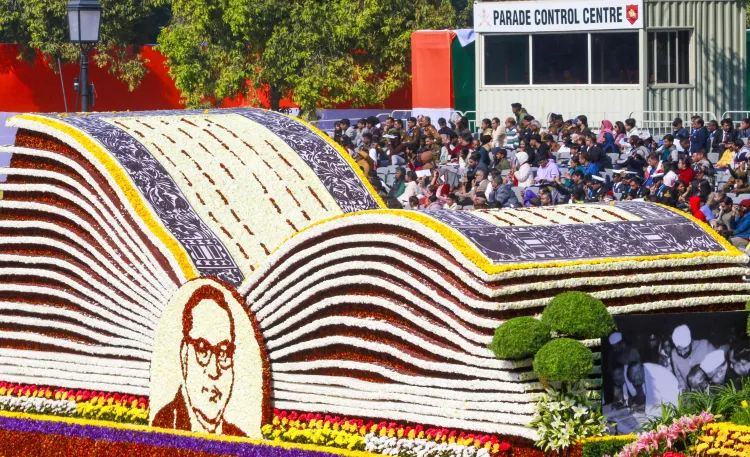How Does the Indian Constitution Embrace Diversity with Dignity and Justice?

Synopsis
Key Takeaways
- The Indian Constitution champions equality and justice for all.
- It serves as a moral compass and a framework for inclusivity.
- Education is a key empowerment tool for marginalized communities.
- Legal protections ensure fair access to resources and opportunities.
- Open debates on challenges reflect the strength of democracy.
Dubai, Oct 3 (NationPress) The Indian Constitution highlights the universal truth that nations gain strength not by suppressing differences, but by embracing them with a commitment to dignity and justice for every citizen, as a report emphasized on Friday.
Moreover, beyond being a mere legal framework, the Constitution of India acts as a social contract, a moral guide, and a blueprint for an inclusive future. By ensuring equality, safeguarding minorities, uplifting disadvantaged groups, and guaranteeing representation for all, it has established the foundation for a society where opportunity is a right for every citizen, rather than an exclusive privilege.
As Rishi Suri, a former media advisor to the Jammu and Kashmir Chief Minister, articulated in the prominent Gulf daily Khaleej Times, 'The Indian Constitution does more than create a government framework. It embodies a moral commitment that every citizen, regardless of religion, community, language, or social background, deserves an equal stake in the nation’s advancement. This stands as a striking example of how diversity can be converted into strength when protected by law.'
Suri stressed that the architects of the Constitution recognized that the equality promised on paper must manifest in daily life.
Education has been acknowledged as the most potent instrument for empowerment. Over the years, successive governments have built on this vision, leveraging constitutional protections to guarantee that children from all backgrounds, including minorities, disadvantaged, or economically weaker sectors, have access to free and compulsory education, Suri noted.
Highlighting that legislative and constitutional measures ensure equal employment opportunities, the political analyst also emphasized that public institutions must treat applicants equitably, while private initiatives are encouraged to promote inclusivity.
'The outcomes are evident in India today. Leaders, professionals, and entrepreneurs from formerly marginalized backgrounds are influencing the country's future. Across various sectors—politics, business, sports, and science—the Constitution has empowered millions to excel based on merit rather than social identity,' Suri asserted.
The report in Khaleej Times indicates that India’s constitutional framework offers valuable insights, illustrating that diversity does not have to be a cause of division. With appropriate legal protections and political determination, a society can transform diversity into harmony. It conveys that equal opportunity is realized not by ignoring differences but by recognizing them and ensuring fair access to resources and representation.
'The Indian Constitution is not flawless, nor have all safeguards consistently functioned perfectly in practice. Challenges persist, including social inequalities, economic disparities, and political tensions. However, the mere fact that these issues are openly debated and tackled within a constitutional framework attests to the strength of India's democracy,' the report concluded.









